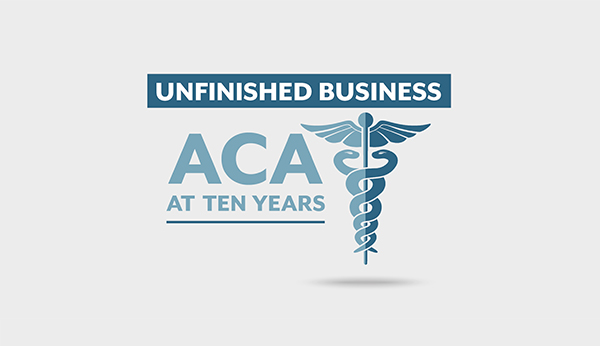
ACA at 10 Years: Consumer Protections
The law’s protections have resulted in significant improvements in cost and coverage for many Coloradans, including a dramatic drop in medical bankruptcies. But the cost of health care is still a challenge — in many cases, an unpredictable one — for many consumers.
The ACA’s consumer protections guaranteed the availability of health insurance coverage to people who were previously denied it; ensured that a wide variety of health benefits were covered by health insurance plans; and limited some of the costs that insurers could pass along to patients.
One of the law’s provisions, for instance, bans insurers from setting lifetime limits or caps on the expenses they will cover for a patient. Prior to the ACA, patients with diagnoses such as cancer that involve expensive care often had to pay for their own health care after their bills climbed past a certain amount. This had dire financial consequences, including forcing patients to take out loans or even declare bankruptcy to afford the care they needed.
Indeed, according to the Colorado Health Access Survey (CHAS), in 2013 more than one million Coloradans reported problems paying medical bills — and one in 10 of these (104,000) said they had declared bankruptcy in the past year because of health care costs. While a similar number of Coloradans struggled to pay medical bills in 2019, the number of people filing for bankruptcy due to health care costs had been reduced by more than two-thirds, to 36,000 people. Medical bankruptcy is still a problem for too many Coloradans, but this dramatic reduction suggests that tens of thousands of people have been shielded from health care costs that could have had a disastrous impact on their lives.
But another major consumer concern — surprise billing, which occurs when patients receive bills for unexpected costs — is not directly addressed by the ACA. Surprise bills often occur when a patient unknowingly receives out-of-network care, which can be delivered at in-network facilities. Feeling taken by surprise when receiving a medical bill isn’t a rare occurrence in our state: In 2019, 30.6 percent of Coloradans reported getting a surprise bill.
Colorado’s legislature has tried to make it easier for consumers to understand which providers are, or aren’t, in their network. Bills introduced in the 2017 and 2018 sessions focused on increasing disclosures from insurance carriers, but none were successful. The 2019 session saw a bill signed into law with strong bipartisan support: House Bill 19-1174 limits how much out-of-network providers can be reimbursed when they are providing emergency care or when they are working at an in-network facility — two common precursors to receiving a surprise medical bill. The bill also requires health insurance carriers to more effectively disclose when consumers may face an out-of-network bill and establishes an arbitration process to hear billing disputes. Proponents see this as a step forward but say work remains to be done; they have introduced bills to clarify other aspects of medical billing in the current legislative session.
Protections such as these can prevent lives from being ruined by financial burdens after a trip to the hospital. But everyday costs, like deductibles and premiums, can also be difficult to afford. Over the next three weeks of our series, CHI will dive deeper into the troubling issue of high health care costs from three distinct perspectives: consumers, the government, and hospitals and providers.


